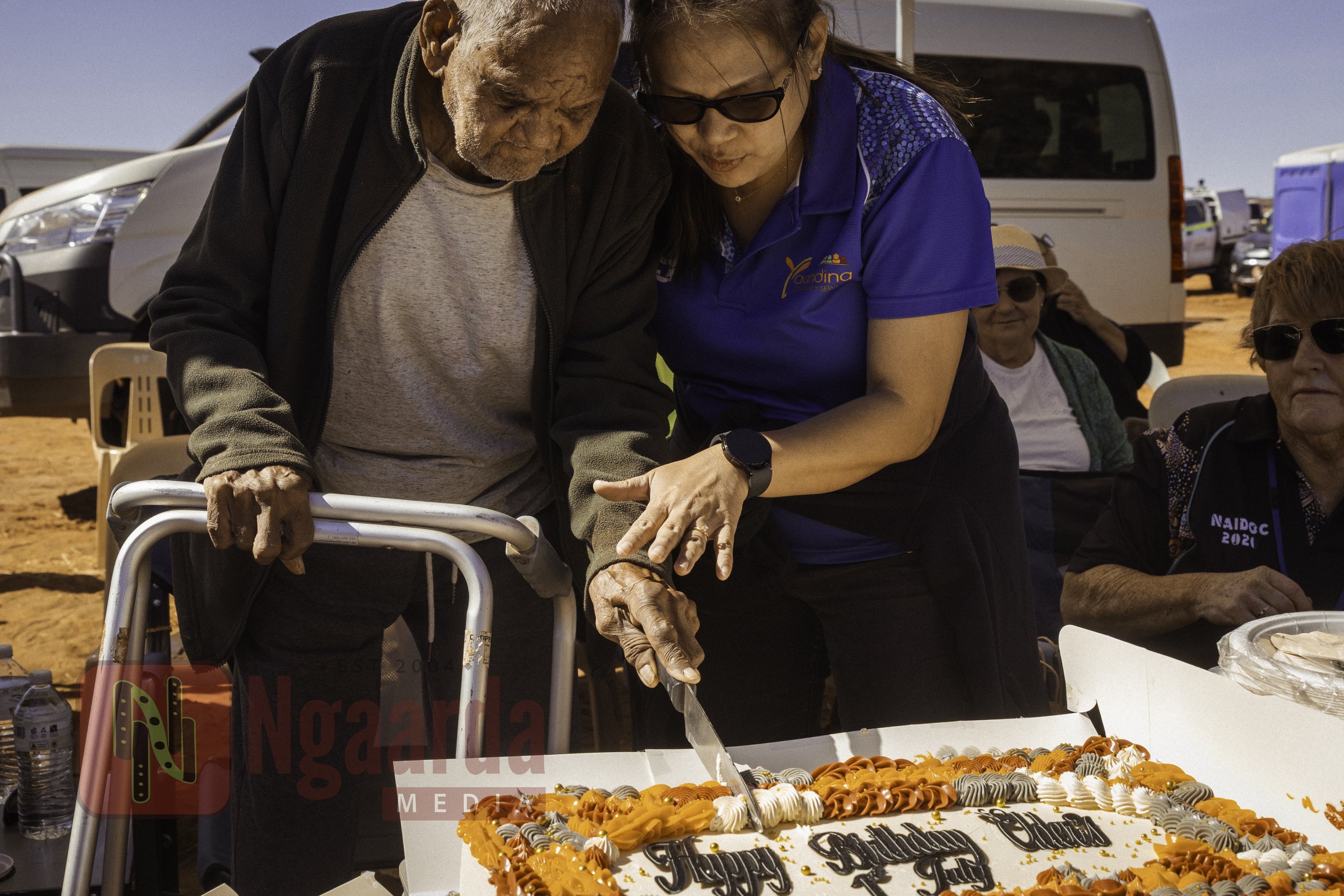A COLLECTIVE BIRTHDAY HONOURING ABORIGINAL AND TORRES STRAIT ISLANDER COMMUNITIES
BY TANGIORA HINAKI AND ASAD KHAN
July 1 marks a significant and heartfelt day of celebration across many Aboriginal and Torres Strait Islander communities — known affectionately as the “Old People’s Birthday.”
The date was originally chosen over 30 years ago to serve as a collective birthday for many Aboriginal and Torres Strait Islander people who did not have formal birth records.
In the 20th century, due to the lack of official documentation, healthcare workers and service providers required a consistent date for administrative purposes. July 1 was selected to help meet this need, particularly for those living On Country who travelled into town for services.
In Roebourne, Ieramagadu, July 1 holds particular significance. It is the date assigned to many Elders who do not know the exact day or year of their birth.
This year, the community gathered at the Old Reserve, where Aboriginal people once lived, to celebrate. Elders were honoured through ceremony, community connection, and respect, with people of all ages coming together to mark the occasion.
While the date was born out of bureaucratic necessity, it has since taken on profound cultural significance. Communities across the country now use July 1 to recognise and celebrate the contributions of Elders — past and present.
Yindjibarndi Elder Jane Cheedy penned and read a powerful Wangka in remembrance of ancestors and Elders.
She reminded the crowd that, “Our ancestors roamed their Ngurra Nali for 40,000 years. They walked and worked on their country, and in turn became the Elders we now honour.”
She spoke of those who were born bush babies—“whose birthdates were not recorded on a piece of millimilli,” she said, using the Yindjibarndi word for paper.
“But remembered by a place, a river, a hill, or under trees—those were their birthplaces. Then the government gave them all the same birthday—this day, 1st of July.”
Ms Cheedy reflected on the movement of families during times of displacement: “Our Elders—Ngarluma, Yindjibarndi, Banjima, Kurama, Mardudhunera—were all herded off the Ngurra Nali, and put here in Ieramagadu.”
She acknowledged the site’s history: “This place, Guiyala in Yindjibarndi and Gujarala in Ngarluma, is where our Elders came to stay until their passing. So we return here each year to remember and to sing to them—Happy Birthday for their knowledge and memories of times long ago.”
The day brought together families, children, and Elders to celebrate with food, music, and shared stories. It was a moment to reflect on cultural strength, resilience, and the deep ties to land and language that live on through the wisdom of Elders.
Listen to Yindjibarndi Elder Jane Cheedy:




